From the Mouths of Netflix Babes

“HELP THIS RICH white man before anyone else!” the Black woman in charge at the hospital on Royal Pains says (essentially) in the first few minutes of the first episode of this popular series. I’m paraphrasing, but she is indeed chastising the hip white doctor-man, who instead wants to save a “YOUNG BLACK KID” (actual description in the script), her priorities be damned.
Ugh, Black female bosses. Am I right? Always trying to stop cis white men in medicine from saving people of color.
The heroic white doctor bravely defies his Black-lady oppressor at work (he “doesn’t share her sense of urgency” for rich whites, per the script), and then he goes on to meet his slim blond fiancée for dinner. Immediately, he insists she doesn’t get to have any food before they leave for sex.
“You don’t own this body yet,” she says (actually, verbatim), flashing him the engagement ring on her finger.
He responds, equally insanely: “I nailed the down payment though.”
Though they negotiate to eat “cold apps only” before she puts out, she decides she’s ready to leave. She says—really—“Let’s go give your long day a happy ending.”
Presumably, she, too, has some sort of job or non-sex-related personality. They are not revealed in these first five minutes, during which he refers to her only as “the world’s most beautiful girl” (note: she is an adult woman), and I couldn’t keep watching to find out if she ever gets them.
Netflix always tells me I might enjoy this show, probably because my devices know I’ve seen every episode of Grey’s Anatomy. I started watching it in grad school during its first season—and my first marriage—on a real TV, and never stopped. But that show was produced by Shonda Rhimes, instead of by apparently my worst nightmares. You don’t have to take my word for it, as LeVar Burton used to say on Reading Rainbow. You can fact-check the cringe of Royal Pains’ opening yourself.
That pilot episode aired in 2009, three years before I married my second husband. Watching HBO’s most recent season of Sort Of, I appreciated that the (queer, of course) characters repeatedly refer to marriage as the end of voluntary affection, which is how marriage felt to me, both times. The second time, it wasn’t just my conditioning but my husband’s explicit assertions that it was my responsibility to be DTF in a moment, at any moment. I maintained that that was not how vaginas always worked. He argued that it was how they should. Per TV.
Per the countless scenes where a man kisses a woman against a wall for one second and she cannot wait to get fucked right there where she stands—scenes my ex-husband cited while complaining about my lack of wanting this.
Watching those first five minutes of Royal Pains, I thought: Jesus Christ. And: Can I blame him? I can, in that he was an adult technically capable of listening to his flesh-and-blood partner when I protested that I needed to start sex with something aside from instant penetration. But the longer we were married, the more he insisted that his manhood depended on my not needing foreplay. Thank god he never saw the Royal Pains fiancée—she doesn’t even need food!
“You knew that when you married me,” my dear departed friend Rice used to say when she was cunty before she’d had morning coffee. It was how she joked about behaviors that were consistent if not always beloved by her loved ones. I was surprised that my second husband became hellbent on immediate intercourse, but I did know when I married him that he expected more access to my body than I wanted to give. I had given more of it than I wanted when we were dating, because I thought that’s what everyone expected. And so if I wanted someone, I had to give it.
“I JUST WANT to get married and not have to worry about anything ever again,” Harry Jowsey says something like on this season of Netflix’s Perfect Match. It’s a reality dating show, where this 27-year-old is looking for a wife—he is dating only to marry at this point, he reiterates multiple times—and he believes that once he’s found her, everything else will settle into place. I could write a doctoral dissertation about the misogynist and objectifying statements that come out of this reality star’s mouth (he was also on Dancing With the Stars), which is to say that we share almost nothing, ideologically or otherwise, in common.
Except: his belief that marriage will solve his life. I drank that Kool-Aid, too. On some level, though I actively challenge and deconstruct it all the time, I still believe it.
“From your lips to God’s ears, Harry,” I said to this big naive dude—he’s 6’5”—on my TV screen. It was nice to hear it so plainly, from someone whose fuck-boy behavior I so vehemently oppose. It highlighted the stupidity of the sentiment, of which I somehow still need to be reminded even after two divorces (but like, they just weren’t the right marriages, right? The right marriage would totally solve all my problems!).
I don’t know if Harry Jowsey, despite being tall and straight and white and cis and a millionaire from his OnlyFans account, feels like he isn’t enough on his own. The fact that he cries—and at one point throws up—on the show because people are thinking unfavorably about him suggests that…maybe he doesn’t. But I know that I’ve never felt like I am. I know that every day, I try to teach myself that I am, and that personally, I’ll need to believe it before I can enter into a relationship from a place of integrity, especially now that I refuse to give access to my body in the incessant culturally expected ways.
That refusal deserves my pride. It fucks up another fucked up system we were all brainwashed into—of involuntary affection, of ideas or ideals about being permanently ready to put out. Last night, I watched Our Son, a movie about an interracial gay couple. In the first few minutes, the couple is walking down a sidewalk with their kid, and I braced for the impending hate crime against them, even though I knew what the movie was about: Divorce. Custody. Not the murdery tragedy porn of most media centering queers. Billy Porter and Luke Evans fight in terrible divorcey ways, just like Scarlett Johansson and Adam Driver in Marriage Story, and I was so happy to sit here watching these gays have straight-people problems, as shitty as those problems were.
But by Marriage Story standards, the protagonists of Our Son do even shitty divorce queerly. They work on themselves, and expand their personal growth. And that’s why: Pride. That’s why we all deserve to be proud, because even when we do normie things (although if I get married again, it will be gay and double-trans in addition to my third legal matrimony), we often do them with a twist. With flair.
With evolution.
“WHAT A PERFECT cat,” a stranger said to me last week. I was at a rural free communal meal, where a bunch of queer and trans people had come together to donate and cook massive amounts of abundant, fresh, love-filled foods for anyone who wanted to partake. Some 45 people showed up; there was food for 90. We were in a field behind a small-town community center, and I put Thomas on his leash to join in the camaraderie. He was chill, because he’s chill, confident among the attention of admirers.
“He’s so calm and sweet,” the stranger said, taking photos of him. “Yeah,” I agreed. “Someday, I’ll have a boyfriend like that, and”—and I could hear my next, impulsive, programmed thought: it’ll solve all my problems.
The week before last, on the full-moon solstice, I sat on a beach with a fellow queer and trans person and said, “Every time I so much as walk into the grocery store, it’s revolutionary.” He had laughed easily, nodding, with the sun on his face. The Way of Things is so fucked up, we all agree, and has been for a long time. But we who fuck with it—queers, trans people, differently abled and neurodivergent and fat and weird and traumatized and tired and poor and so many other kinds of people—are so lacking in support and representation that we often second-guess our alternative way, whatever it looks like.
Some part of me came out in support of my own way, my enough-ness, at the communal dinner. “Someday, I’ll have a boyfriend like that, and it’ll be magical,” I said. Even that, I corrected immediately. “It’ll be even more magical.”

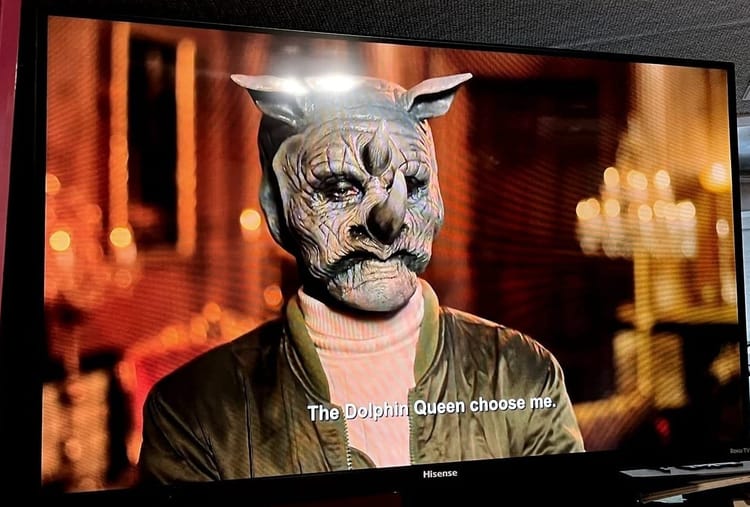
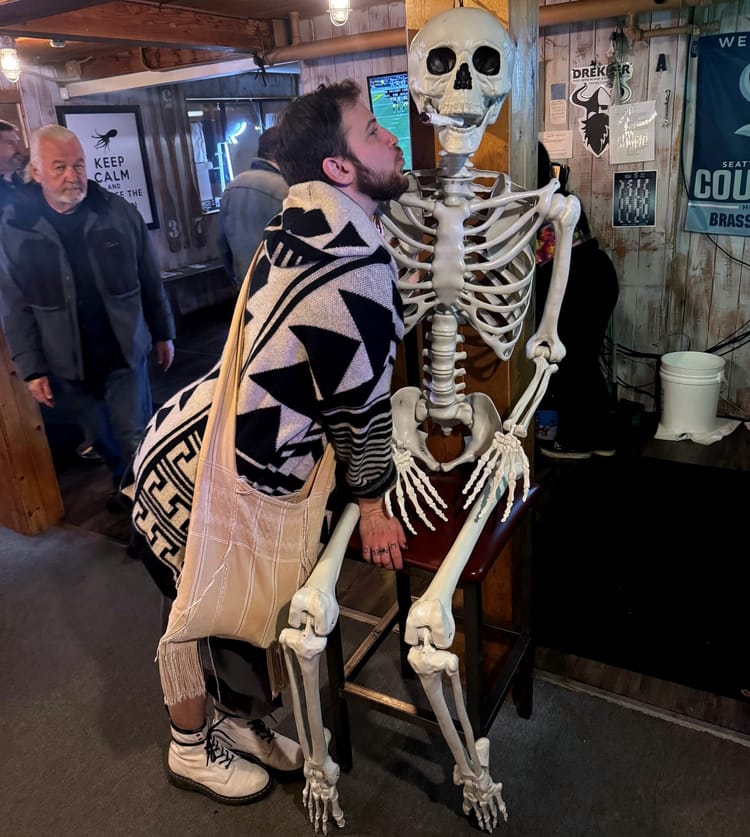
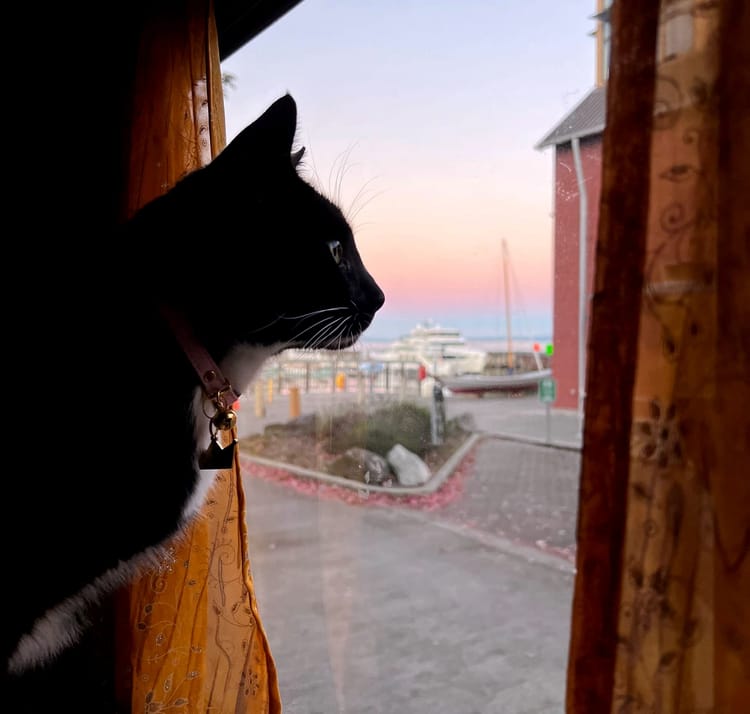
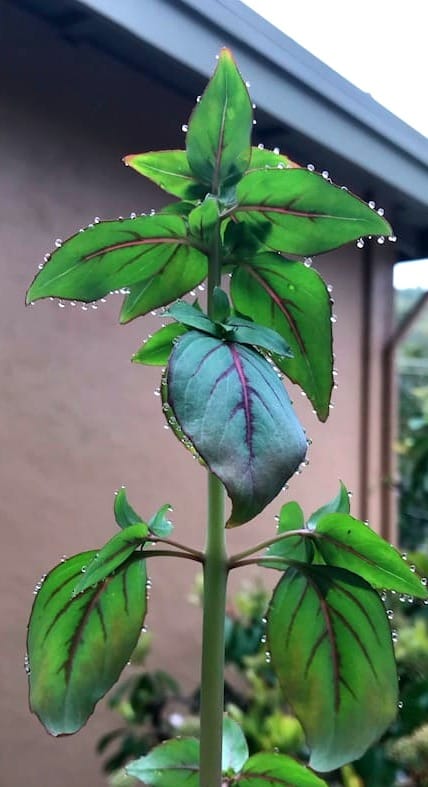
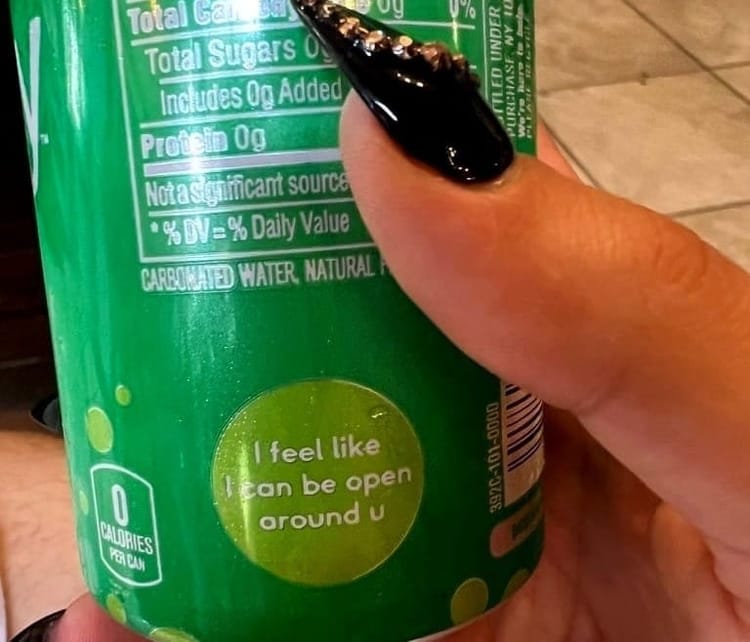
Member discussion